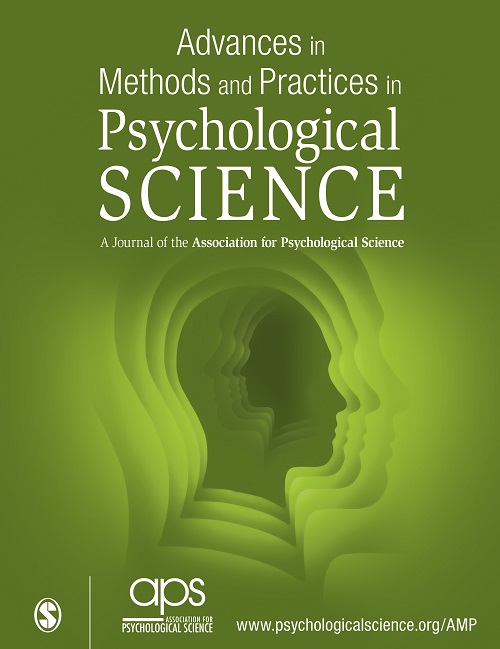Statistical Control Requires Causal Justification
IF 13.4
1区 心理学
Q1 PSYCHOLOGY
Advances in Methods and Practices in Psychological Science
Pub Date : 2020-10-13
DOI:10.1177/25152459221095823
引用次数: 46
Abstract
It is common practice in correlational or quasiexperimental studies to use statistical control to remove confounding effects from a regression coefficient. Controlling for relevant confounders can debias the estimated causal effect of a predictor on an outcome; that is, it can bring the estimated regression coefficient closer to the value of the true causal effect. But statistical control works only under ideal circumstances. When the selected control variables are inappropriate, controlling can result in estimates that are more biased than uncontrolled estimates. Despite the ubiquity of statistical control in published regression analyses and the consequences of controlling for inappropriate third variables, the selection of control variables is rarely explicitly justified in print. We argue that to carefully select appropriate control variables, researchers must propose and defend a causal structure that includes the outcome, predictors, and plausible confounders. We underscore the importance of causality when selecting control variables by demonstrating how regression coefficients are affected by controlling for appropriate and inappropriate variables. Finally, we provide practical recommendations for applied researchers who wish to use statistical control.统计控制需要因果证明
在相关或准实验研究中,使用统计控制从回归系数中去除混杂效应是常见的做法。控制相关混杂因素可以消除预测因子对结果的估计因果效应;也就是说,它可以使估计的回归系数更接近真实因果效应的值。但是统计控制只在理想的情况下起作用。当选择的控制变量不合适时,控制可能导致估计比不受控制的估计更有偏差。尽管统计控制在已发表的回归分析和控制不适当的第三变量的后果中无处不在,但控制变量的选择很少在印刷品中明确证明是合理的。我们认为,要仔细选择适当的控制变量,研究人员必须提出并捍卫一个因果结构,包括结果、预测因素和合理的混杂因素。在选择控制变量时,我们强调因果关系的重要性,通过展示回归系数如何受到控制适当和不适当变量的影响。最后,我们为希望使用统计控制的应用研究人员提供实用建议。
本文章由计算机程序翻译,如有差异,请以英文原文为准。
求助全文
约1分钟内获得全文
求助全文
来源期刊
CiteScore
21.20
自引率
0.70%
发文量
16
期刊介绍:
In 2021, Advances in Methods and Practices in Psychological Science will undergo a transition to become an open access journal. This journal focuses on publishing innovative developments in research methods, practices, and conduct within the field of psychological science. It embraces a wide range of areas and topics and encourages the integration of methodological and analytical questions.
The aim of AMPPS is to bring the latest methodological advances to researchers from various disciplines, even those who are not methodological experts. Therefore, the journal seeks submissions that are accessible to readers with different research interests and that represent the diverse research trends within the field of psychological science.
The types of content that AMPPS welcomes include articles that communicate advancements in methods, practices, and metascience, as well as empirical scientific best practices. Additionally, tutorials, commentaries, and simulation studies on new techniques and research tools are encouraged. The journal also aims to publish papers that bring advances from specialized subfields to a broader audience. Lastly, AMPPS accepts Registered Replication Reports, which focus on replicating important findings from previously published studies.
Overall, the transition of Advances in Methods and Practices in Psychological Science to an open access journal aims to increase accessibility and promote the dissemination of new developments in research methods and practices within the field of psychological science.

 求助内容:
求助内容: 应助结果提醒方式:
应助结果提醒方式:


